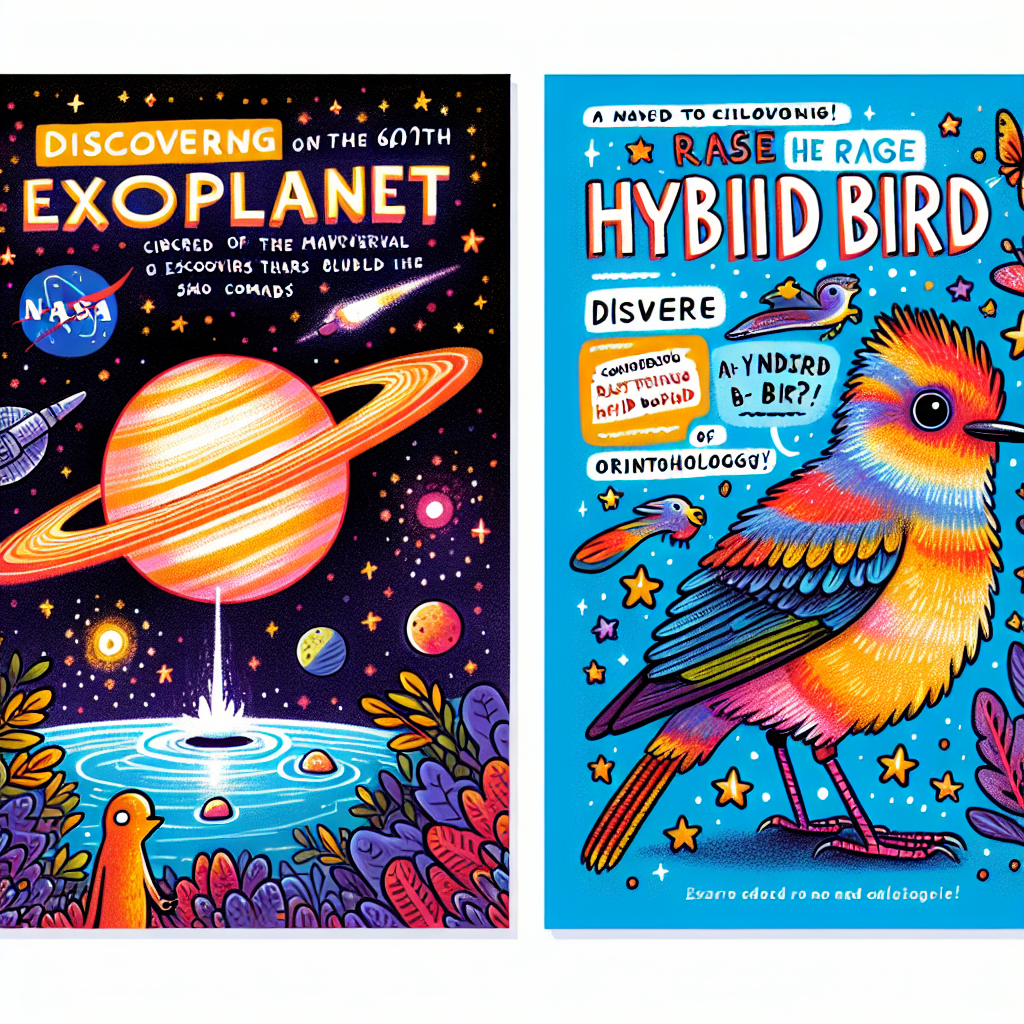21st September 2025
In a series of groundbreaking scientific developments, researchers have made remarkable discoveries both in deep space and here on Earth, highlighting the ever-evolving nature of our understanding of the universe and its inhabitants.
NASA's Milestone Discovery NASA recently achieved a significant milestone with the discovery of its 6,000th exoplanet, revealing an astounding variety of worlds unlike anything in our solar system. These distant planets showcase extreme conditions, including sideways glass rain and planets completely covered by vast oceans. This achievement represents more than just a number; it opens up infinite possibilities in our search for extraterrestrial life and deepens our understanding of our own planet's place in the cosmos.
Climate Change Creates Unprecedented Hybrid In a remarkable terrestrial discovery, scientists at The University of Texas at Austin have documented a unique bird displaying characteristics of both green and blue jays. This unprecedented hybrid, observed in a Texas backyard, may represent the first vertebrate hybrid directly linked to climate change. The two jay species, which have evolved separately for 7 million years, have been brought into contact due to shifting habitats caused by changing climate conditions, leading to this rare interbreeding event.
Ancient History Unearthed Adding to these discoveries, paleontologists working in the Gobi Desert have uncovered an exceptional juvenile pachycephalosaur fossil. This specimen, notable for its unusually thick skull, represents the oldest and most complete finding of its kind. According to dinosaur expert Lindsay Zanno, this rare discovery provides valuable insights into these iconic yet enigmatic creatures, potentially answering long-standing questions about dinosaur biology.
Medical Breakthroughs In the medical field, scientists have developed a revolutionary breath sensor capable of diagnosing diabetes within minutes. This non-invasive technology examines breath acetone levels, offering a significant improvement over traditional diagnostic methods. Additionally, researchers have identified a key molecule that explains decreased hunger following exercise, potentially opening new avenues for obesity treatment.
Nature's Marvels Scientists have also decoded the remarkable olfactory abilities of ants, discovering a unique genetic mechanism that allows these insects to detect minimal scent traces. This finding could have far-reaching implications for developing advanced smell detection technology for human applications.
These diverse discoveries across multiple scientific fields demonstrate the continuous advancement of human knowledge and understanding, from the farthest reaches of space to the microscopic world beneath our feet.
This article is based on today's episode of KidsNewsFlash, a daily news podcast for kids and families. Listen on Apple Podcasts, Spotify, or wherever you get your podcasts!

